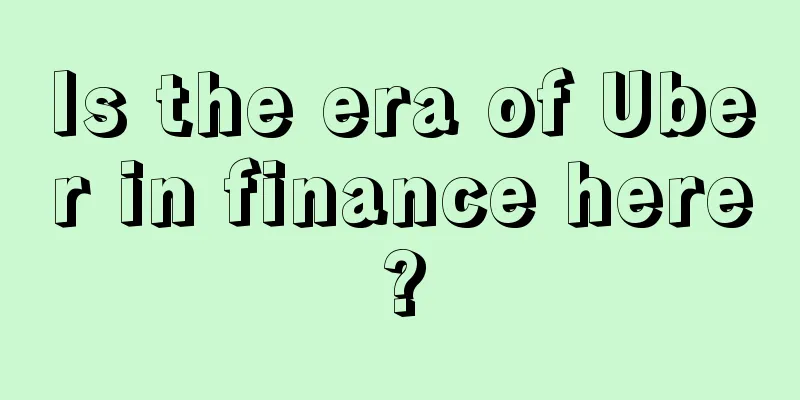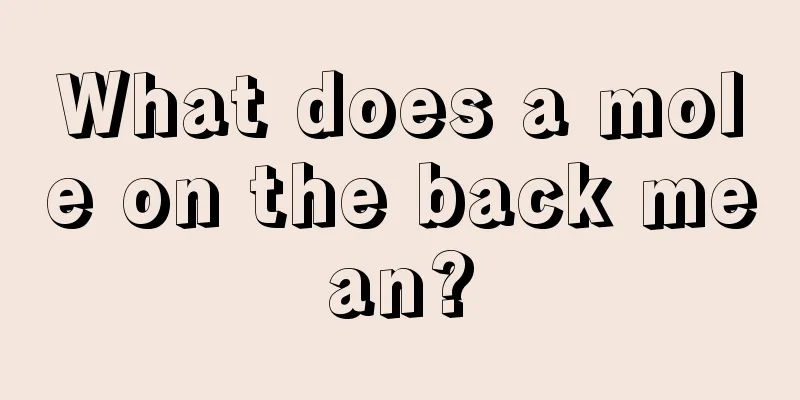Is the era of Uber in finance here?

Translation: Annie_Xu If you believe the hype, everything is being Uberized. But has the Uber era of financial technology arrived? That was the central topic at a panel at this week’s Economist Summit, which brought together traditional financial institutions, technology experts, and startups, including Wealthsimple, co-founded by Chief Technology Officer Brett Huneycutt, which is working to disrupt the existing wealth management industry. He believes that the Uber era has arrived, but it is important to understand what it means. As a long-term user, Huncutt has found three significant features of Uber that are worth learning from: first, it has changed the interface for consumers to call a taxi; second, it has changed the backend operation mode of the traditional taxi industry; and finally, it has demonstrated the speed of upgrading the business model that was incubated in San Francisco for a year. "The financial industry should learn from Uber." Cameron Fowler But Cameron Fowler, head of Canadian personal and commercial banking at BMO Financial Group, disagrees. “I don’t think this is the age of Uber, but the age of the consumer. Disruption in this space is a good thing.” It is not appropriate to equate the banking industry with the taxi industry, as the latter has always provided a poor customer experience. Despite the problems of Canada's financial services industry, it has been ranked as the world's number one by Cap Gemini. In addition, there are more than 80 banks competing with each other in the industry, and "there will be no winners in this game." But Fowler agrees with what Huneycutt said, Uber has changed the rules of the game, providing users with a completely digital, more comfortable and efficient experience, "user experience is the battlefield for competitors. There will be competitors to Uber, but not now." The financial industry requires a lot of trust and the ability to work in a regulatory environment. BMO and its peers need to pay close attention, unlike the taxi industry, "We are now feeling the disruption." Fowler said the closure of Apple stores and the launch of Apple Pay in Canada underscore this disruption and signal a shake-up of the traditional hierarchy of Canadian banking. BMO is now putting its mobile app ahead of its call center to improve customer engagement and speed up issuance cycles. Dino Trevisani IBM Canada President Dino Trevisani agreed with Fowler that there are big differences between the banking and taxi industries, but Internet financial companies can provide more value and Uber's impact has put a lot of pressure on banks. Trevisani said IBM supports both large banks, which need to understand how to foster a culture of innovation in order to change themselves to adapt to the environment, and innovative small start-ups, which need support for corporate development. Huneycutt said that there are pros and cons to starting a startup in Canada. "We have a huge talent pool," and recruiting talent is easy because there is no competition like in Silicon Valley. However, San Francisco has a culture of tolerance for failure, believing that failure is a necessary process of learning; this is not the case in Toronto. Fowler said that from the perspective of banks, the industry's digitalization process is slow, "one of the reasons is that there is no reason to do so"; for example, the development of the payment field in Canada is very slow, and technologies such as blockchain are just getting started. Huneycutt said that there are many opportunities for cooperation between traditional banks and start-ups, and in fact, it is necessary. Wealthsimple's cooperation with traditional enterprises provides it with sales channels and credibility support. Internet finance can attract talents and iterate quickly; while large banks have enough data, "I think we are all afraid of each other." Fowler commented, "This is a good scene for collaboration." |
>>: 'Blockchain-friendly' proposal advances in North Carolina
Recommend
Is it true that people with long life lines on their palms can be healthy and live longer?
How to read the lifeline diagram on palmistry? Th...
Can AMM liquidity mining become a sustainable business model?
Written by: Cui Chen, works at HashKey Capital Re...
Is it more likely that a woman has a Sichuan-shaped palm?
There are many palm lines in the palmistry diagram...
What kind of fortune does crow's feet represent? Is it good for women to have crow's feet?
Women with crow's feet are romantic When a pe...
The face of a woman who wants to be naughty but is afraid of the cold
Some women just want to wear less in winter, to b...
What kind of face does a woman love to cheat on her husband?
Cheating used to be a topic that was difficult to...
Talking about the development cycle of the Bitcoin industry - the Bitcoin industry seems to be introducing government factors
Chapter 0 Introduction Recently, the attention of...
What kind of woman has a good face?
Everyone wants to be blessed; so in physiognomy, ...
Is it auspicious to have a mole on a woman’s nipple? What does a mole on a woman’s nipple mean?
Traditional physiognomy covers a wide range, among...
What does a crooked mouth mean? You are easily jealous of other people's achievements.
We often say that appearance is determined by the...
Exposed! Profit and loss calculations of major trading platforms
In this round of market surge , contract trading ...
People with this feature are destined to have a short life. What kind of face will make people have a short life?
People with sunken foreheads are destined to have...
The Complete Works of Magical Physiognomy (Part 4)
15 Look at the distance between eyebrows The best...
The physical form of the body as seen from the Tao Te Ching
Tao Te Ching, an important ancient academic work,...
Wisdom line and life line separated_palm analysis
There are three clear main lines on everyone'...









